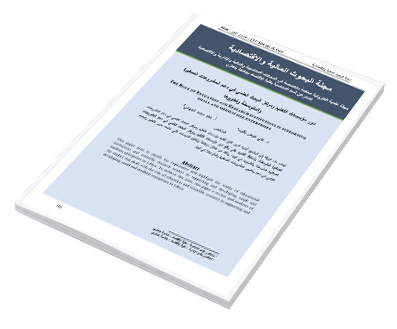The causes and effects of corruption in Libya: An analytical study for the period (2003-2018)
DOI:
https://doi.org/10.37376/jofer.vi6.847Abstract
The main objective of this study is to determine the causes of corruption and its effects on the main variables and indicators including informal economy, economic growth, and the rates of poverty and inequality in the Libyan economy during the period (2003-2018). Using descriptive analysis the study concluded that corruption and informal economy are both complementary to each other. This means that when corruption increases, informal economy increases, and vice versa. In addition, the study finds that corruption affects negatively economic growth and poverty and it widens the gap of inequality in the Libyan society. These conclusions consist with the findings of most of the studies about corruption phenomena and its effects that made around the world, according to the economic literature review. Finally, the study recommended that an evolution is needed and should be done as soon as possible in both, policy and institutions in order to fight corruption and its effects, all together.
Key words: Corruption, Corruption Perception Index, Informal Economy, Inequality and Poverty Rates, Economic Growth.
Downloads





